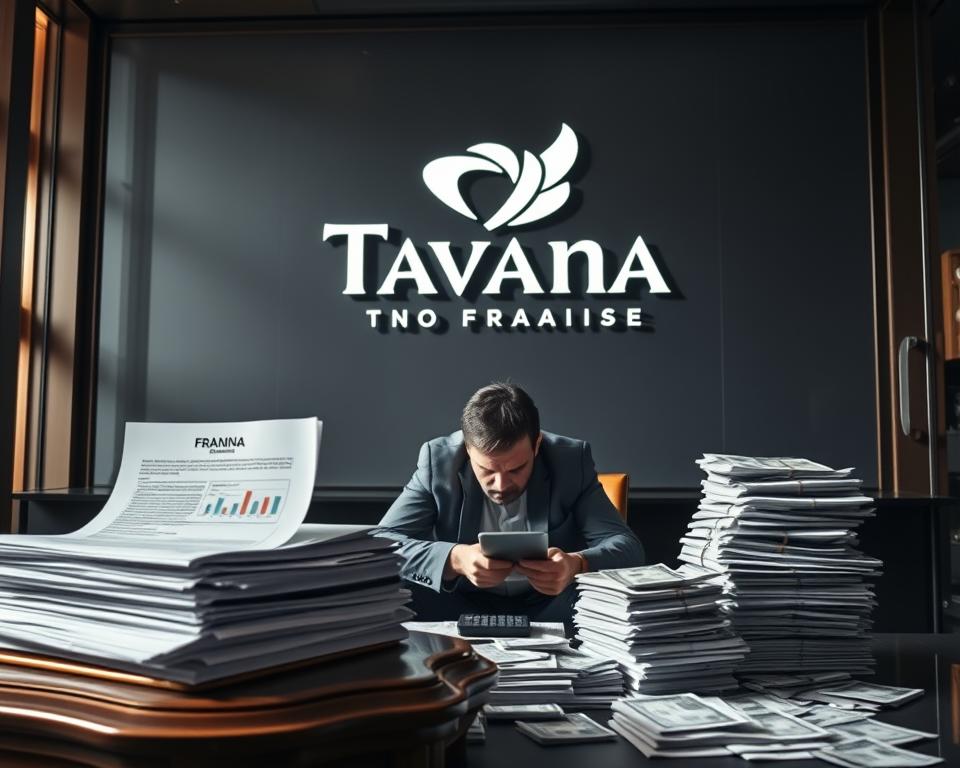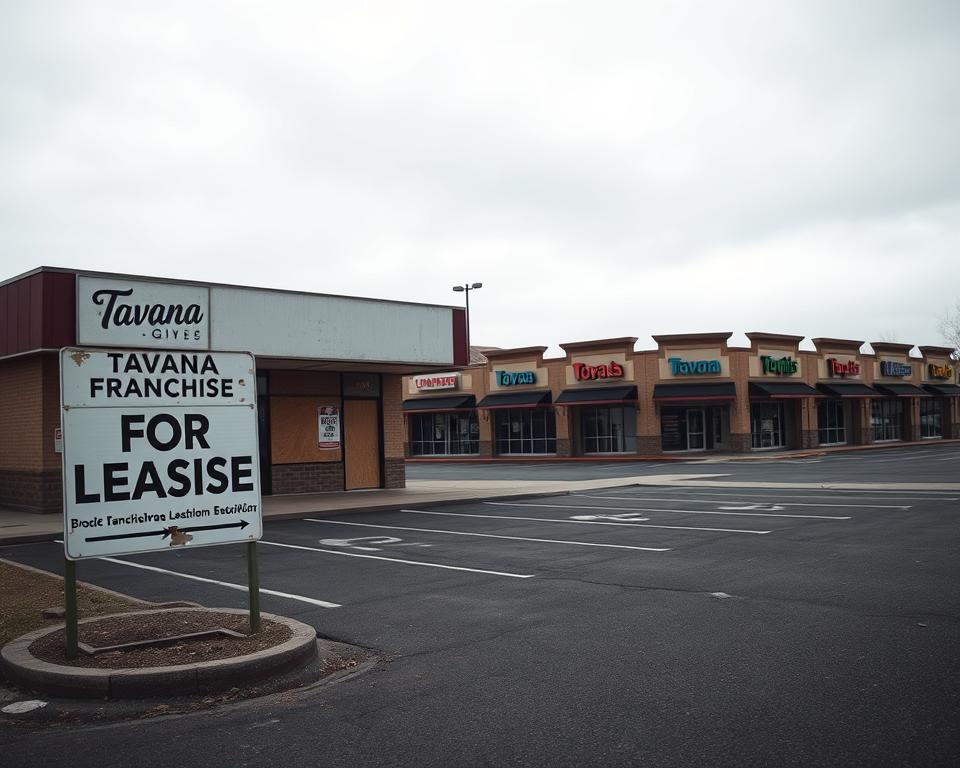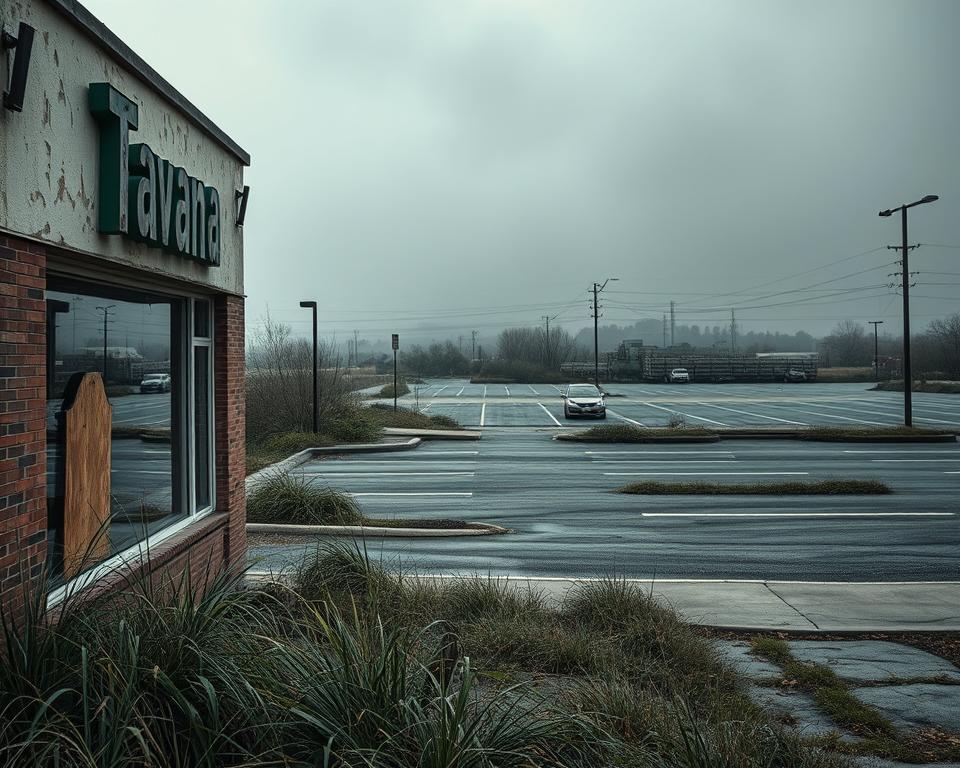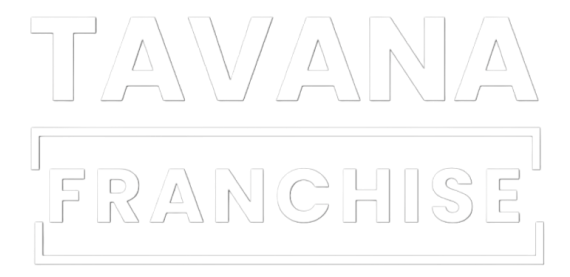Are you thinking about investing in a franchise? It’s a big step with over 76,000 franchise establishments in Canada. Franchising offers many benefits, but it also has its challenges.
Before you invest, it’s key to look at the potential drawbacks of franchising. A case study can give you insights into the problems faced by current franchisees. This can help you make a better choice. If you’re interested in learning more or need advice, Tavana Franchise consultants are here to assist.
Key Takeaways
- Understanding the potential downsides of franchising is crucial before investing.
- A case study can provide valuable insights into the challenges faced by existing franchisees.
- Franchising comes with its own set of challenges, despite its many benefits.
- Personalized guidance is available from franchise consultants like Tavana Franchise.
- Exploring franchise opportunities requires careful consideration.
The Promise and Reality of Franchise Ownership
Many people think buying a franchise is a quick way to success. They believe it’s low-risk. But, the real experience is often more complex and tough.
Common Expectations vs. Actual Outcomes
Some think a well-known brand will bring in lots of customers and money. But, having a famous brand doesn’t mean you’ll make it big. Many franchise owners face financial disappointments and operational constraints that hurt their business.
Setting the Stage for Our Case Study Approach
To learn about the drawbacks of franchising and the challenges of franchise business, we’re doing a case study. We’ll look at real franchisees’ stories. This will give us a true picture of what owning a franchise is like.
Research Methodology
We analyzed franchise agreements, financial reports, and talked to franchisees. This way, we got both numbers and stories about the problems franchise owners face.
Subject Selection Criteria
We picked franchisees from different fields, all with at least two years of experience. This helped us see the long-term effects of owning a franchise and the usual problems they encounter.
Meet John: A First-Time Franchise Owner’s Journey
John started his first franchise venture with a mix of excitement and doubt. His journey highlights the franchise pitfalls and franchising downsides that many face.
Background and Initial Investment Decision
John’s past career was a big factor in his decision to invest in a franchise. We’ll look at his background and how he chose his franchise.
Previous Career Experience
John had a successful marketing career before becoming a franchise owner. This gave him a strong business foundation. But, he didn’t have direct experience in the franchise’s industry.
Franchise Selection Process
John researched many franchises before picking a well-known one. He chose it for its strong support and proven business model. He was attracted to its reputation and the chance for good returns.
The First Year of Operations
The first year was a steep learning curve for John, filled with challenges and surprises.
Early Challenges and Surprises
John faced unexpected issues like staffing problems and supply chain issues. These problems were tough on his resources. He was also surprised by the franchise’s bureaucracy.
Financial Performance Reality
The finances of John’s franchise were mixed. Sales were good at first, but profit margins were tight due to fees and costs. This affected his overall earnings.
The Negatives of Franchising: Real-World Examples
Franchising isn’t always what it seems, as John’s story shows. It’s often seen as an easy way to start a business. But, the downsides can be big.
Financial Disappointments in John’s Case
John faced big financial challenges with franchising. His business didn’t make money as expected. This was due to high royalty fees and unexpected costs.
These money problems caused a lot of stress for John and his family.
- High initial investment
- Ongoing royalty fees
- Unexpected operational expenses
Operational Constraints That Limited Growth
The franchise rules limited John’s business growth. He had to follow the franchisor’s model closely. This made it hard for him to be creative or keep up with competitors.
Personal and Family Impact
Franchising deeply affected John’s personal and family life. The business needed a lot of his time. This hurt his work-life balance and overall health.
Work-Life Balance Issues
John worked long hours, missing out on family and personal time. The franchise’s demands were too much, leaving no room for flexibility.
Stress and Health Considerations
The stress of running a franchise hurt John’s health. The constant pressure to meet targets and manage the business caused chronic stress and health problems.
In conclusion, John’s story shows the negatives of franchising. These include financial troubles, operational limits, and personal impacts. These reasons not to franchise are important to think about before investing.
High Initial Investment and Ongoing Fees
Starting a franchise can be expensive. You’ll face big upfront costs and ongoing fees. It’s key for anyone thinking about franchising to understand these costs well.
Breaking Down John’s Startup Costs
John started his franchise journey with a big investment. His costs fell into a few main areas:
- Initial franchise fee
- Equipment and inventory expenses
- Marketing and training costs
Franchise Fee and Equipment Expenses
The initial franchise fee was $40,000. This gave John the right to use the franchise’s name. He also spent $120,000 on equipment and inventory, crucial for starting up.
Hidden and Unexpected Costs
John also faced hidden costs like legal fees, insurance, and permits. These added $20,000 to his initial costs.
How Royalty Fees Affected Monthly Profitability
Royalty fees, a percentage of monthly sales, cut into John’s profits. These fees were 8% of his monthly sales, affecting his profit margins.
Comparing Projections to Reality
John thought he’d make a certain profit at first. But, the ongoing fees changed that. This shows how important it is to forecast finances accurately.

Limited Creative Control and Innovation
As a franchise owner, you might find it hard to innovate and meet local market needs. This is a big challenge of franchise business. It limits how you can change to meet customer wants and needs.
When Local Market Insights Are Overruled
John, a franchise owner, faced this issue. He knew what his local customers wanted but had to stick to the franchisor’s rules. This included the menu and how to run the business.
“The franchisor’s rules didn’t always match what I knew about my local market,” John said. “It was tough to follow a model that didn’t fit local needs.”
Standardization Requirements That Hurt Business
The rules from the franchisor can cause problems. These include:
- Menu and Product Restrictions: Not being able to offer what local customers want.
- Operational Mandates: Being forced to follow practices that don’t work well locally.
These rules can lead to missed chances and less competition.
Menu and Product Restrictions
Not being able to change the menu or add new items is tough. John saw a trend towards healthier food but couldn’t offer it because of franchisor rules.
Operational Mandates
Operational rules from the franchisor can also hold you back. John found that some of these rules weren’t the best for his location.
In summary, franchising has its perks, but the limits on creativity and innovation are big franchise pitfalls. It’s key for those thinking about franchising to understand these challenges.
Territorial Restrictions and Market Saturation
When you think about getting into a franchise, it’s key to know about territorial rules and market saturation. As a franchisee, you put a lot of time and money into your business. You expect to have control over your area and market share.
John’s experience with nearby franchise spots shows a common problem. Even with promises of a safe territory, John found himself facing off against other franchisees nearby.
Nearby Franchise Locations
John’s story is just one example. Many face issues when new locations pop up close by. This can take away from their customer base.
Limited Expansion Opportunities
Not being able to grow beyond a certain area can be a big problem. This is really tough for ambitious franchisees like John. They see chances to grow but are held back by their contract.
Territorial Rights Disputes
Disputes over territory can cause big problems. When franchisees feel their area is being invaded, it can strain their relationship with the franchisor.
Competition from Sister Brands
Dealing with competition from other brands in the same network can be tough. This internal fight can be as hard as facing outside competitors.
| Challenge | Impact on Franchisee |
|---|---|
| Territorial Restrictions | Limits geographical expansion |
| Market Saturation | Reduces customer base |
| Territorial Rights Disputes | Creates tension with franchisor |
| Competition from Sister Brands | Increases internal competition |

Knowing about these challenges is crucial for smart franchise choices. Being aware of the risks helps you navigate franchising better. This way, you can make decisions that fit your business goals.
Franchisor-Franchisee Relationship Challenges
Good communication is crucial for a strong franchisor-franchisee bond. Success in franchising depends on teamwork, sharing info, and mutual support. Yet, this is often missing.
Communication Breakdowns John Experienced
John, like many, struggled with poor communication from his franchisor. Regular updates on marketing or changes were scarce. He had to face challenges alone, leading to misunderstandings and lost chances.
Support Promises vs. Reality
The franchisor promised a lot, including detailed training and marketing help. But, John faced training inadequacies and marketing support issues in reality.
Training Inadequacies
The training John got was not enough. He had to learn many things on his own. This wasted time and caused costly errors.
Marketing Support Issues
John was promised strong marketing support but got little. He had to spend a lot of time and money on local marketing. It didn’t always match the franchisor’s plans.
| Support Aspect | Promised | Actual |
|---|---|---|
| Training | Comprehensive | Insufficient |
| Marketing Support | Robust | Minimal |
Feeling Like “Just a Number” in the System
John felt treated as “just another franchisee”, not a valued partner. The lack of personal support and a one-size-fits-all approach made him feel distant from the team.
“The biggest challenge was feeling like I was on my own, despite being part of a larger franchise system. The promised support was not there when I needed it most.”
Many franchisees share John’s feelings. They believe franchisors focus more on profits than people. This strains the relationship and hurts the franchise’s success.
Contractual Obligations and Exit Difficulties
Investing in a franchise means more than just a business model. It also means agreeing to complex contracts that can affect your business a lot.
The Fine Print That Changed John’s Business Reality
John learned the hard way about the importance of knowing your contract. Two key points were non-compete clauses and the need for upgrades.
Non-Compete Clauses
Non-compete clauses stop you from starting a similar business if you leave the franchise. This can block your future business chances and make it hard to get out.
Mandatory Upgrades and Renovations
Franchisors often ask for upgrades and renovations to keep the brand looking good. While it helps the brand, it can be expensive for you and might hurt your finances.

John’s Attempt to Sell or Transfer the Franchise
When John wanted to leave his franchise, he faced big challenges. These included getting franchisor approval and dealing with financial costs.
Franchisor Approval Hurdles
The franchisor could say yes or no to potential buyers. This made it hard for John to sell and might have lowered the sale price.
Financial Implications of Early Termination
Ending the franchise early can cost a lot. John had to pay a big fee to get out, which made things even tougher financially.
In summary, franchise contracts can be tough, with issues like non-compete clauses and penalties for early exit. Knowing what you’re getting into before you sign is key to avoiding problems.
Brand Reputation Vulnerabilities
One of the often-overlooked franchising downsides is the risk to your business from other franchisees. When you invest in a franchise, you’re not just buying a business model. You’re also joining a larger brand image.
Damage from Other Franchisees
The actions of other franchisees can harm your local reputation. For example, poor service from a nearby franchisee can hurt your business, even if you offer great service. This can lead to lost customer trust and loyalty.
Corporate Scandals and Their Impact
Corporate scandals can also hurt your daily operations. When a franchise brand faces controversy, it can scare off potential customers. This can hurt your profits.
Customer Perception Changes
Customer views can change quickly with bad news. You might face more scrutiny and skepticism from potential clients.
Crisis Management Limitations
As a franchisee, you might struggle to manage a crisis. The franchisor controls brand messaging and crisis strategies. This can limit your ability to address local concerns effectively.
| Reputation Risk Factor | Impact on Franchisee | Potential Mitigation Strategy |
|---|---|---|
| Poor service by other franchisees | Loss of local customer trust | Focus on delivering exceptional service to differentiate your business |
| Corporate scandals | Negative publicity affecting local business | Engage in local community initiatives to maintain a positive image |
Lessons Learned: When Franchising May Not Be Right for You
Before you jump into franchising, think if it matches your goals and skills. Franchising isn’t for everyone. Knowing its downsides is key.
Personality and Work Style Considerations
Think if your personality and work style fit franchising. If you love being independent and creative, franchising might feel too restrictive. But, if you prefer a structured approach and support, it could work for you.
Financial Readiness Assessment
Check if you’re financially ready. Franchising costs a lot upfront and keeps taking money. Make sure you can afford it and if the profits are worth the investment.
Alternative Business Models to Consider
If franchising isn’t for you, look at other options:
- Independent Business Ownership: Starting your own business lets you control everything and be flexible.
- Partnership Opportunities: Working with others can share the financial risk and bring in different skills.
Independent Business Ownership
Being your own boss means you can change fast and be creative. But, you’ll handle everything, from planning to day-to-day tasks.
Partnership Opportunities
Partnerships can use each person’s strengths and help with weaknesses. It’s important to pick a partner who shares your goals and work ethic.

Conclusion: Making Informed Franchise Decisions
It’s key to know the downsides of franchising before you dive in. John’s story shows how owning a franchise can be different from what you expect.
Think carefully about the pros and cons. Ask yourself if you’re ready financially, if you like the work style, and if you want to control your business.
Getting advice from experts can help a lot. Tavana Franchise consultants offer personalized help at every step of the franchising journey.
Knowing the possible downsides helps you prepare for franchise ownership. This knowledge lets you decide if franchising fits your goals.

